Black Performance Theory: Borders of Blackness

The Black Performance Theory working group is a collective of scholars working on the theory, history, and practice of African Diasporic expressive cultures. The primary mission of BPT is to provide intellectual and community support to Assistant Professors as they move through the challenges of academic life. The experience of writing and performing theory links scholars and scholar/performers in unique modalities of conversation, debate, and collaboration. Bringing together diverse disciplinary perspectives provides an unbounded look at performative commonalities/divergences of the African Diaspora including, but not limited to, music, dance, feminist strategies, spirituality, oratory, performance art, architecture and public space theory, racial formation, theatre, historiography, spoken word, and queer cultures. We strive for vibrant critical discussions of methodologies, paradigms, and approaches to theorizing Black performance.
At each meeting, a small cadre of scholars and practitioners share work in experimental sessions that have included dance performances, play readings, poetry and solo performance work, film screenings, flash animation presentations, and the creation of group improvisations. A space for active Witnessing allows audience members to engage productively with Participants’ contributions. The group functions as a site for intellectual creativity, for communal consideration of foundational concepts in performance theory, and as a much-needed opening into the space of performance discourse as it might be inflected Black.
Participants:

Sakena Young-Scaggs is an unyielding voice on race, gender, and social justice. After completing both her MDiv and STM at Boston University, she worked and served in Higher Education for over a decade as what she calls an “academic midwife,” lending to her contention that we must birth new life every day in the academy and nurture students toward their own success. She has previously served as the Associate Dean of Marsh Chapel at Boston University and as the Associate Protestant University Chaplain at Brown University in Providence, Rhode Island. Rev. Sys,” as called by her students, is an ordained Itinerant Elder in the African Methodist Episcopal Church and holds leadership positions in her denomination and the local church.
Her dissertation was titled “Afrofuturism, Womanist Phenomenology, and the Black Imagination: A Liberative Revisioning of Black Humanity,” is an analysis of spaces of empowerment and hope through science fiction and comic convention culture. Her broader research areas include Womanist Ethics, Africana Philosophy, religious praxis, human intersubjectivity, and social epistemology. As an Africanist she has studied in Ghana and Senegal. As an interdisciplinarian, she deploys her research to examine Futurism and innovative approaches to human concerns through the interface of S.T.E.M. and Humanities. Young-Scaggs uses her theoretical lens to study women’s activism, social movements, intergenerational cultural dynamics, and African cultural practices in the Diaspora and on the Continent.

Bimbola Akinbola is an interdisciplinary artist and scholar working at the intersection of visual art, performance, and African diaspora studies. She is currently the 2018-2020 Black Arts Initiative Postdoctoral Fellow at Northwestern University. Akinbola’s research examines how African diasporic women use contemporary visual art, performance, film, and literature to contest and redefine familial, cultural, and national belonging. She is currently working on her first book manuscript, which examines the creative work of contemporary Nigerian diasporic women artists whose work, she argues, strategically utilizes disbelonging as a critical tool and strategy for queer worldmaking. Her visual art and movement making practices are concerned with the complicated and nagging nature of belonging, queerness, black bodies in leisure, and diasporic nostalgia. Her current project #queerafricanrising is an ongoing ethnographic portrait series documenting the experiences of individuals who identify as both queer and African.

Devan Shimoyama (b. Philadelphia, PA) received his BFA from The Pennsylvania State University in Drawing/Painting (2011) and his MFA from Yale University School of Art in Painting/Printmaking (2014). Shimoyama has exhibited throughout the United States, including at De Buck Gallery, Lesley Heller Gallery, and Kravets Wehby Gallery in New York, NY; Kavi Gupta in Chicago; Samuel Freeman Gallery and Zevitas Marcus Gallery in Los Angeles, CA; and internationally at Frieze London and in Realities in Contemporary Video Art at the Fondation des Etats Unis, in Paris, France. Shimoyama’s first solo museum exhibition entitled Cry, Baby debuted at the Andy Warhol Museum in 2018. Shimoyama has been featured in publications such as The Los Angeles Times, The New York Times, New American Paintings (Volume 105 & 116), Vice, and Creators Project. Devan is currently full-time faculty at Carnegie Mellon University, and lives and works in Pittsburgh, PA.

Omotayo Jolaosho is a socio-cultural anthropologist whose work examines dynamically embodied performances (freedom songs, protest dances) within activist collectives opposing neoliberal state policies in South Africa. She is currently an Assistant Professor in the School of Interdisciplinary Global Studies at the University of South Florida. Integrating research and theatrical practice, she is developing a play based on interviews and fieldwork with women activists in Johannesburg that highlights distinct gender-based exposures and vulnerabilities within social movements.

Thomas F. DeFrantz directs SLIPPAGE: Performance|Culture|Technology, a research group that explores emerging technology in live performance applications, currently in residence at Duke University. DeFrantz received the 2017 Outstanding Research in Dance award from the Dance Studies Association. DeFrantz believes in our shared capacity to do better, and to engage our creative spirit for a collective good that is anti-racist, anti-homophobic, proto-feminist, and queer affirming.

Hershini Young is a Professor in African and African American Studies at UT Austin where she teaches classes on black performance. Her books Haunting Capital (Dartmouth UP) and Illegible Will: Coercive Spectacles of Labor in South Africa (Duke UP) examine women’s laboring bodies, their aesthetic practices and archival practices. She is currently working on a manuscript entitled Falling, Crawling and Other Ways to get Off: Alternate Embodiment and Performance in Africa in which she rethinks what the normate African body looks like and how it moves.

Xavier Livermon is an Assistant Professor of African and African Diaspora Studies at the University of Texas at Austin. He has published widely in the fields of African Popular Culture and African Queer Studies in journals including GLQ, Feminist Studies, and Black Music Research Journal. His forthcoming book with Duke University Press, Kwaito Bodies: Remastering Space & Subjectivity in Post-apartheid South Africa discusses the rise of post-apartheid South African popular culture and its articulation with contemporary politics of race, gender, and sexuality.
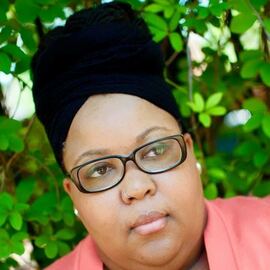
Takiyah Nur Amin, PhD (Temple University, ’11) is a scholar, educator, and consultant. Currently, she is the Dance History Postdoctoral Research Assistant for the Dunham’s Data Project at the Royal Central School of Speech and Drama, University of London. Her research and teaching interests center the experiences of African Americans and others in the Diaspora as it relates to the histories of 20th-century concert dance and related performance traditions. The interdisciplinary nature of her interests gives me the space to consider pedagogical issues in dance studies as well as broader questions regarding Black performance, aesthetics, and intellectual history. Dr. Amin has served as a twice-elected board member of the Congress on Research in Dance and is the co-founder of the Dance Studies Association’s Diversity Working Group. Dr. Amin is also founding board member and co-convener of the Collegium for African Diaspora Dance (CADD) and committee member of PoP Moves International.

Gabriel Peoples is an Assistant Professor whose research is located at the nexus of Performance, Gender, and Africana Studies. Currently, he is completing a scholarly manuscript, Goin’ Viral: Uncontrollable Black Performance, that examines the rewards and risks of “viral performance”–repeated visual and sonic engagements with Blackness in popular culture and everyday life, which are packaged as spreadable images, films, and digital videos for mass consumption. In Goin’ Viral he argues that while this Black virality supports commonsense ideologies about Black bodies, it also creates paths of alterity where Blackness is challenged and its histories renegotiated, allowing for widely and quickly circulated possibilities for livability. His broader interests include Black performance theory, visual culture, Sound Studies, Black masculinity, American Studies and HIV prevention. His research was recently published by Lexington Books in Pan African Spaces: Essays on Black Transnationalism, 2019.
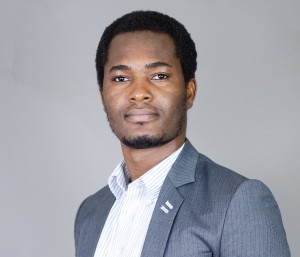
Dotun Ayobade situates his research at the intersection of performance, gender, sexuality and postcolonialism in West Africa. He earned his Ph.D. from the Department of Theatre and Dance at The University of Texas at Austin. He also obtained portfolio certificates in African and African Diaspora Studies (AADS) as well as in Women and Gender Studies (WGS). He is currently working on his first book manuscript titled Women That Danced the Fire Dance: Fela Kuti’s Queens and the Postcolonial Politics of Play. This work examines the shifting notions of power and agency that Fela’s wives (famously known as Afrobeat Queens) embodied through Afrobeat performance. Ayobade’s research earned him The University of Texas at Austin’s prestigious Graduate School Named/Endowed Continuing Fellowship for 2014-2015. Ayobade currently teaches in the Department of African and African Diaspora Studies (AADS) at UT Austin.
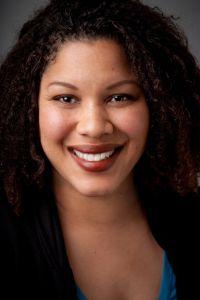
Stephanie Leigh Batiste is Associate Professor of Black Studies and English at The University of California at Santa Barbara and Director of the Hemispheric South/s Research Initiative. She is co-editor of the NYU Book Series Performance and American Culture. Her specialty areas include Black Performance Studies, African American Literature and Culture, American Studies, and Cultural Studies. Her book, Darkening Mirrors: Imperial Representation in Depression Era African American Performance (Duke University Press, 2011) focuses on the relationship between power and identity in black performance cultures to reimagine black subjectivity. Her current book project studies violence and affect in millennial black urban performance cultures in Los Angeles. Professor Batiste is also a creative writer, performer, and supporter of the arts.

Rich Blint is the 2016-2017 Scholar-in-Residence in the MFA Program in Performance + Performance Studies in the Department of Humanities and Media Studies at Pratt Institute. He is co-editor of a special issue of African American Review on James Baldwin; contributing editor of The James Baldwin Review; provided the introduction and notes for the eBook, Baldwin for Our Times: Writing from James Baldwin for an Age of Sorrow and Struggle (Beacon Press 2016); and was the October Guest Critic of The Brooklyn Rail, which featured Baldwin. He is presently at work on his book project, A Radical Interiority: James Baldwin and the Personified Self in Modern American Culture and is the editor of the 1980s volume of The African American Literature in Transition Series: 1750-2015, being prepared for Cambridge University Press. He has held faculty, research, and administrative appointments at Columbia University, Barnard College, Hunter College, and the Murphy Institute at the Graduate and University Center, CUNY; and has received fellowships from the Andrew W. Mellon and Woodrow Wilson National Fellowship Foundations, among others.
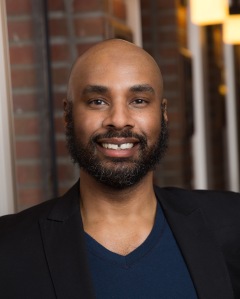
Mark Broomfield, Assistant Professor of Dance Studies and Associate Director of the Geneseo Dance Ensemble at SUNY Geneseo (Ph.D., M.F.A.), is a scholar/artist who has danced with the repertory company Cleo Parker Robinson Dance, performing in leading works by some of the most diverse and recognized African American choreographers in the American modern dance tradition that include: Talley Beatty, Katherine Dunham, Eleo Pomare, Donald McKayle, David Rousseve, and Ronald K. Brown. His forthcoming publications include “Branding Ailey: “Carrying On” and the Embodied Resistance of the Queer, Black, Male Dancing Body,” by Oxford University Press and “Stranger in the Bronx” by Vanderbilt University Press. His poem “Passing Out” is published in Conversations Across the Field of Dance Studies. He is currently working on his book Passing for Almost Straight: Dance, Race, and Gender After Alvin Ailey and documentary Danced Out. Broomfield is the recipient of the Woodrow Wilson Career Enhancement Fellowship, the SUNY Faculty Diversity Award, and the Ford Foundation Fellowship. www.markbroomfield.org
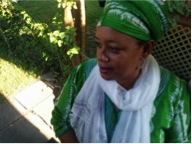
N. Fadeke Castor is a Black Feminist ethnographer and African diaspora Studies scholar. She has taught on Afro-Atlantic religions, popular culture, cultural anthropology and social theory at Williams College, Duke University, and Texas A&M University. This summer she will be joining the faculty of Northeastern University, where she will continue her work focusing on religion, race, and the intersectional politics of decolonization. Her first book, Spiritual Citizenship: Transnational Pathways from Black Power to Ifá in Trinidad (Duke University Press 2017; winner of the 2018 Clifford Geertz Award for best book in Anthropology of Religion) argues that the Trinidad Ifá/Orisha religion emerges from black power as central to the development of decolonization practices and cultures in the post-colonial Caribbean. Her new project focuses on the interplay of the black radical tradition, social justice, and African spirituality as an example of spiritual citizenship in action. (Iya) Fadeke is also a Yorùbá Ifá/Orisha priest with initiations in Ifá, Obatala, and Egbe.
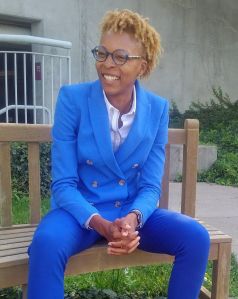
Dr. Tabitha Chester is a Visiting Assistant Professor of Black Studies and Women’s & Gender Studies at Denison University. She received her PhD in Theatre and Performance of the America’s and a graduate certificate in Women and Gender Studies from Arizona State University in the Summer of 2013. Her current research interests include sexuality, religion, and performativity in Black culture. Her dissertationIma Read: Reading the Black Church through the Performative Work of Black Same Gender Loving Men, looks at the role religion plays in the performance of sexuality in the Black community. She is currently working on her monograph No Daughter of Mine: Performing Sexuality and Gender as a Preacher’s Daughter.

Imani Kai Johnson is an interdisciplinary scholar and Assistant Professor of Critical Dance Studies at UC Riverside, specializing in African diasporic ritual cultures, global popular culture, and Hip Hop. Dr. Johnson is completing her manuscript, Dark Matter in Breaking Cyphers: Africanist Aesthetics in Global Hip Hop with Oxford University Press. She is also founder and chair of the Show & Prove Hip Hop Studies Conference Series, and co-editor (with Mary Fogarty) of the forthcoming anthology The Oxford Handbook on Hip Hop Dance Studies.

Born and raised in Fresno, CA, Taisha Paggett is a Southern California-based interdisciplinary dance artist and UC Riverside Assistant Professor whose individual and collaborative works re-articulate and collide specific western choreographic practices with the politics of daily life to interrogate fixed notions of Black and queer embodiment, desire and survival. Such works include the dance company project, WXPT (we are the paper, we are the trees) and the School for the Movement of the Technicolor People, both of which seek to radicalize questions held within contemporary dance by way of intersecting with social practice; radical pedagogy; somatic and contemplative investigations; queer, feminist and Black studies; performance and visual art; and the political and philosophical meshes of personal history. Paggett is the recipient of the Foundation for Contemporary Art’s Merce Cunningham Award (2019) and is an Assistant Professor of Dance at UC Riverside.
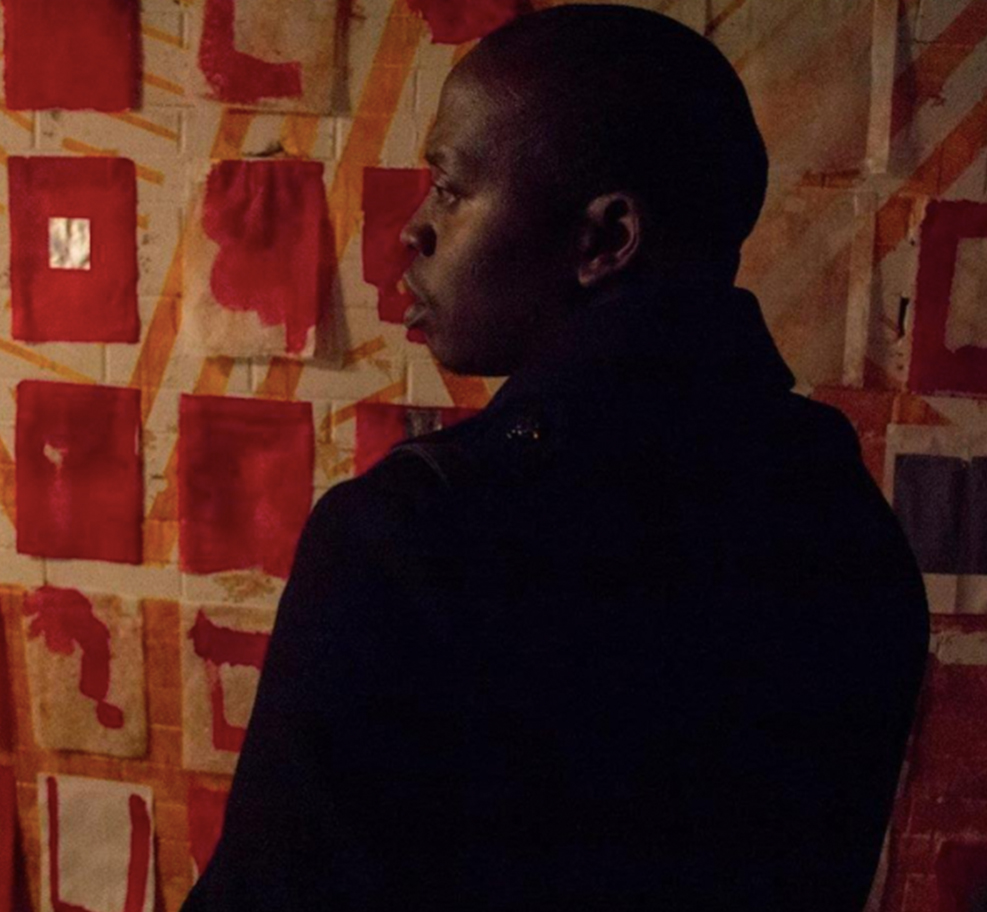
Mlondolozi “Mlondi” Zondi is a Chicago-based movement artist, dramaturg, curator, and doctoral candidate in Performance Studies (with graduate certificates in Critical Theory, Gender Studies, and African Studies). Mlondi’s research project titled “Unmournable Void” is a study of contemporary movement-based Black (Diasporic) performance as well as visual art and culture. An engagement with radical Black thought, theories of the psychoanalytic, and performance theory activate the project’s main questions about matter, mournability, and ontological absence. Prior to pursuing studies at Northwestern, Mlondi received an M.F.A in Dance as a Fulbright Scholar at the University of California, Irvine; and a BA (Hons) in Cultural Studies and Performance Studies from the University of Kwa-Zulu Natal (in South Africa). Mlondi co-edits an independent journal called Propter Nos.

Christopher-Rasheem McMillan is a performance related artist and scholar. He has a joint appointment between Dance and Gender, Women’s & Sexuality Studies at the University of Iowa. McMillan received his BA from Hampshire College (2007), his MFA in Experimental Choreography from the Laban Conservatoire, London (2011), and his PhD in Theology and Religious Studies from King’s College, London (2017).
His interests concern choreography in an expanded field, something that he has approached through experimental practices and creative processes in a multiplicity of formats and expressions. He uses video, performance, photography and oral storytelling to explore themes of race, memory, queer desire, religion, personal and public mythology.
McMillan’s performance works have been seen at venues such as the Bates Dance Festival of Bates College, Providence International Arts Festival (PVD), and The Dance Complex and Green Street Studios in Cambridge, Massachusetts, and in performance platforms such as the 2011 participatory event Beyond Text, London. He was a Five College Fellow for the 2013–14 academic year, the recipient of the McGreggor-Girand Dissertation Fellowship for the 2014–15 academic year, and the Grant Wood Fellow in Interdisciplinary Performance in 2016-17. His writing has been published in The Journal of Dance, Movement & Spiritualities, Kinebago, and Contact Quarterly.

Bernard Brown, Assistant Professor of Dance and Director of Sacramento/Black Art of Dance at Sacramento State University, is an artist, activist, scholar who situates his work at the intersection of blackness, gender, and sexuality. Brown has performed with distinguished artists and companies including Lula Washington Dance Theatre, David Rousseve/REALITY, TU Dance, Shapiro & Smith Dance, Doug Elkins Dance Company, Donald McKayle, Rennie Harris, Kamasi Washington, Vincent Patterson, Rudy Perez, Nike, and was invited to perform with Mikhail Baryshnikov in Robert Wilson’s “Letter to a Man” with choreography by Lucinda Childs. His choreography has been presented throughout the United States, including Royce Hall and REDCAT in Los Angeles, CA; ODC Theater and Mission Theater in San Francisco, CA; University of Chicago and Harvest Chicago Contemporary Dance Festival in Chicago, IL; Crocker Art Museum in Sacramento, CA; Southern Methodist University in Dallas, TX, and at multiple International Association of Blacks in Dance conferences. He has presented his scholarship on blackness, queerness and post-modern dance at conferences across the US. Brown has been featured in the New York Times and Los Angeles Times. He is also recipient of the Westfield Emerging Artist Award, and a Lester Horton Award. He is Artistic Director of Bernard Brown/bbmoves. The LA Times has called him “…the incomparable Bernard Brown…”

Raquel Monroe, Ph.D. is an Associate Professor in Dance at Columbia College Chicago, and the Director of Academic, Diversity, Equity, and Inclusion, Academic Personnel. Through a black feminist lens and narrative, her monograph theorizes how 1960’s Black Power nostalgia as performed by contemporary black female producers in pop culture spectacles, inspires the contemporary Movement for Black Lives while shrouding the black bodies deployed by the U.S government in the Vietnam War.
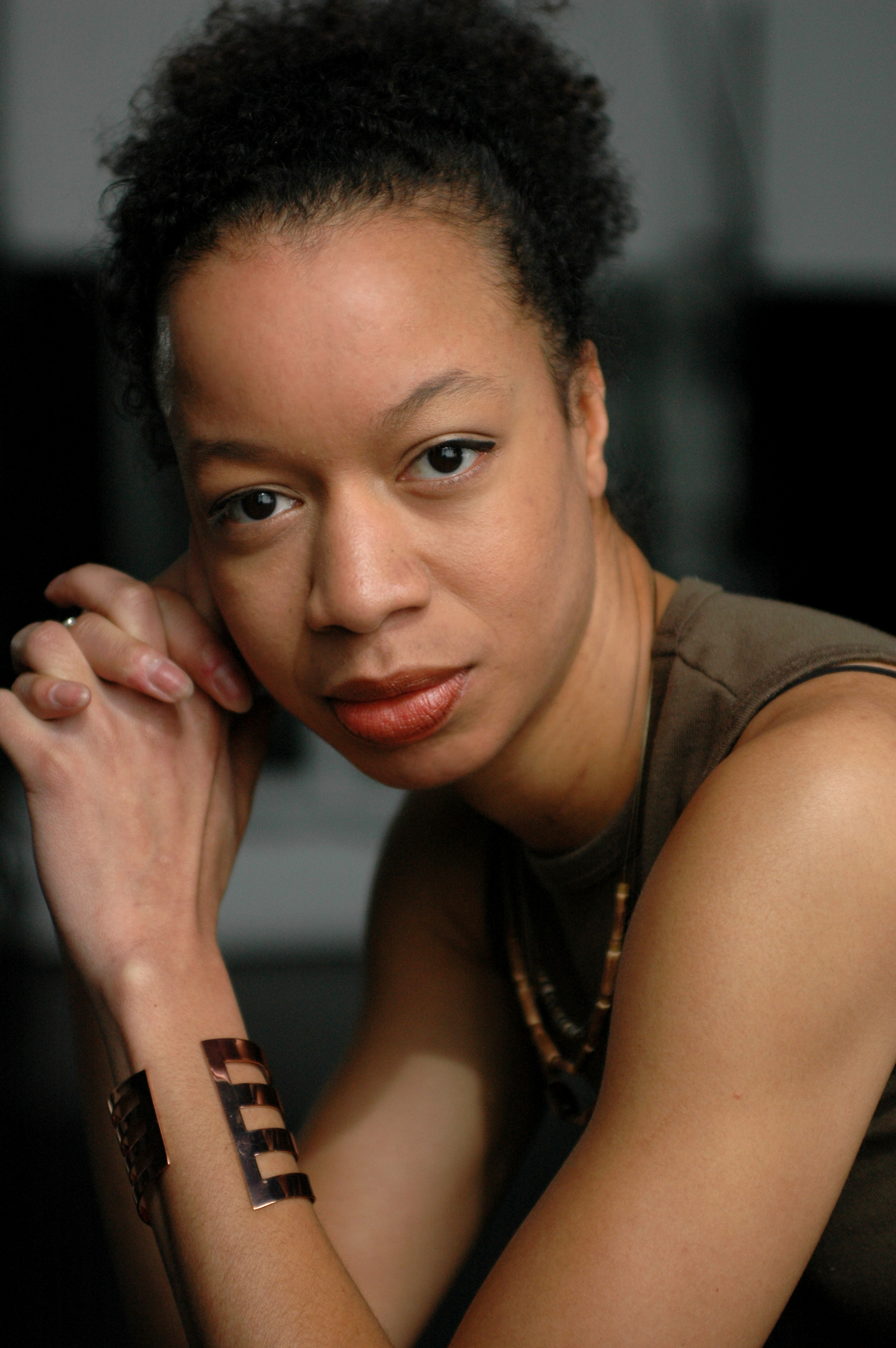
Gesel Mason is a choreographer, performer, educator, and arts facilitator. She is Artistic Director of Gesel Mason Performance Projects (GMPP) and an Associate Professor at University of Texas at Austin. For over 20 years, Mason’s solo project, “NO BOUNDARIES: Dancing the Visions of Contemporary Black Choreographers,” has featured the work of Kyle Abraham, Robert Battle, Rennie Harris, Dianne McIntyre, Donald McKayle, Bebe Miller, David Rousséve, Reggie Wilson, Andrea E. Woods Valdéz, and Jawole Willa Jo Zollar. Currently, the project is transforming into a digital humanities archive, the first iteration now available on Google Arts & Culture. In 2017, Mason was one of four choreographers commissioned for American Dance Festival’s “Footprints.” In 2015, Mason received a Map Fund for her project “antithesis,” which challenged how female sexuality is perceived, performed, and (re)presented. Mason was one of six choreographers selected by the Joyce Theater for a Rockefeller Residency Initiative in 2011 and received the Millennium Stage Local Dance Commissioning Project from the John F. Kennedy Center for the Performing Arts in 2007. For more information visitwww.geselmason.com.

| Jeffrey Q. McCune, Jr. is associate professor of African and African American Studies and Women, Gender, and Sexuality Studies at Washington University in St. Louis. He is the author of the award-winning book Sexual Discretion: Black Masculinity and the Politics of Passing. His work has been featured in the Journal of Homosexuality, QED: A Journal of LGBT Worldmaking, American Quarterly, Spectrum, and Text & Performance Quarterly. He is presently completing two book manuscripts. First, On Kanye is a critical engagement with the impossibility of black genius, iconography, and monster aesthetics. Second, Disobedient Readings: An Experiment in Seeing Black, is a monograph which utilizes black gay men’s vernacular use of “reading”—an interpretation/critique of performance which is centered in one’s love and/or proximity to a black object—as a new way to theorize and analyze blackness. He has been featured on Left of Black, Sirius XM’s Joe Madison Show, HuffPost Live, Pitchfork, and a guest expert on Bill Nye Saves the World. |
-

Javon Johnson is an Assistant Professor and Director of African American & African Diaspora studies and holds an appointment in Gender & Sexuality Studies in the Interdisciplinary, Gender, and Ethnic Studies Department at the University of Nevada, Las Vegas. He received his Ph.D. in Performance Studies with a certificate in Gender Studies and Cognate in African American Studies from Northwestern University in 2010. Dr. Johnson’s scholarly interests include performance, blackness, African American literature, black pop culture, slam and spoken word, black feminist theory, black queer theory, masculinity studies, black sexualities, and ethnography.
Dr. Johnson has published: Killing Poetry: Blackness and the Making of Slam and Spoken Word Communities, The End of Chiraq: A Literary Mixtape .Additionally, Dr. Johnson has published in Text & Performance Quarterly, Liminalities, QED: A Journal of Queer Worldmaking, The Root, Huffington Post, and others. Currently finishing up his first book of poems, Dr. Johnson is a creative scholar who has mounted exhibitions at the California African American Museum where he managed the History Department. A renowned spoken word poet, he is a three-time national poetry slam champion, a four-time national finalist, and has appeared on appeared on HBO’sDef Poetry Jam, BET’s Lyric Café, TVOnes Verses & Flow, The Steve Harvey Show, The Arsenio Hall Show, United Shades of America with Kamau Bell on CNN, and co-wrote a documentary titled Crossover, which aired on Showtime, in collaboration with the NBA and Nike.

Grisha Coleman is a composer and choreographer in performance and experiential media, her work explores relationships among our physiological, technological and ecological systems. She works as an Associate Professor of Movement, Computation and Digital Media in the School of Arts, Media and Engineering [AME] and the School of Dance at Arizona State University. Her recent art and scholarly work echo::system is a springboard for re-imagining the environment, environmental change, and environmental justice. Coleman is a New York City native with an M.F.A. in Composition and Integrated Media from the California Institute of the Arts, following which she was awarded a fellowship at the STUDIO for Creative Inquiry at Carnegie Mellon University. Her work has been recognized nationally and internationally including a 2012 National Endowment Arts in Media Grant [NEA], the 2014 Mohr Visiting Artist at Stanford University, and grants from the Rockefeller Fund, and The Creative Capital Foundation. She was a member of the acclaimed dance company ‘Urban Bush Women’ and founded the music performance group HOTMOUTH, toured extensively nationally and internationally, and was nominated for a 1998 NYC Drama Desk Award for “Most Unique Theatrical Experience.”

Marlon M. Bailey is Associate Professor of Women and Gender Studies in the School of Social Transformation at Arizona State University and the Benedict Distinguished Visiting Professor in Africana Studies at Carleton College. Bailey is the former Distinguished Weinberg Fellow in the Department of African American Studies and the Programs in Gender and Sexuality Studies and American Studies at Northwestern University, and a Visiting Professor at the Center for AIDS Prevention Studies (CAPS) at the University of California, San Francisco.
Marlon’s book, Butch Queens Up in Pumps: Gender, Performance, and Ballroom Culture in Detroit, was published by the University of Michigan Press in 2013. In 2014, Butch Queens Up in Pumps was awarded the Alan Bray Memorial Book Prize by the GL/Q Caucus of the Modern Language Association and a finalist for the Lambda Literary Book Award in LGBT Studies. Bailey has published in American Quarterly, GLQ, Signs, Feminist Studies, Souls, Gender, Place, and Culture, The Journal of Gay and Lesbian Social Services, AIDS Patient Care & STDs, LGBT Health, and several book collections. Marlon’s essay, “Black Gay (Raw) Sex,” appears in No Tea, No Shade: New Writings in Black Queer Studies (Duke U Press 2016), edited by E. Patrick Johnson.
Marlon is also a theatre/performance artist and recently presented his solo-performance (in progress), “Exploring Black Queer Sex, Love, and Life in the Age of AIDS,” at Concordia University and McGill University, both in Montréal, Canada.
Bailey is the recipient of the Joan Heller Bernard Fellowship from the Center for LGBT Studies (CLAGS) in New York City. His is also co-winner of the Modern Language Association/GLQ Caucus’s Compton-Noll Prize for best article in LGBTQ Studies. He also held the University of California Chancellor’s Postdoctoral Fellowship in the Department of Gender and Women’s Studies at UC-Berkeley. Marlon holds a PhD in African Diaspora Studies, with a designated emphasis in Gender, Women, and Sexuality from the Department of African American Studies at the University of California-Berkeley. Marlon also earned an MFA in Acting from West Virginia University.
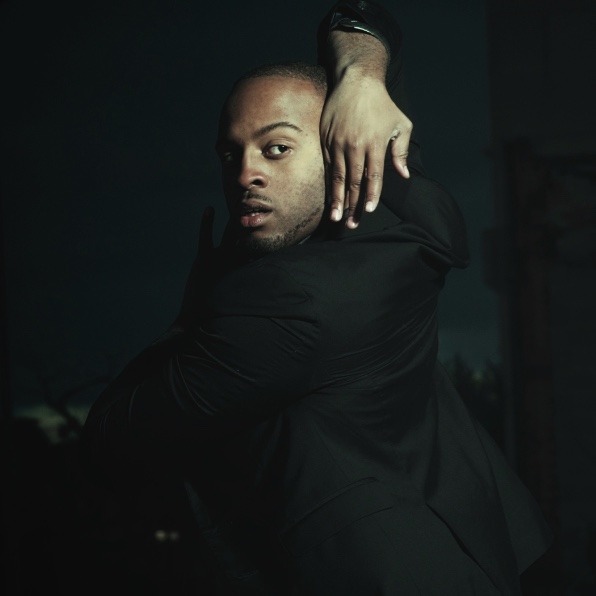
Marcus White is an American movement maker, educator, community engagement advocate and cultural worker. His work has been described as ingenious and vulnerable by the Chicago Tribue and according to Dance Panorama is bold. As founder and creative director of Detroit-based performance company White Werx, he creates dance-driven work for the stage and screen. Whites teaching and creative practice centralizes embodied performance as transformational and are informed by his experiences and embodied investigations of urban, social and postmodern contemporary movement forms through an Afroqueer lens. White joined the faculty at Arizona State in 2016.
